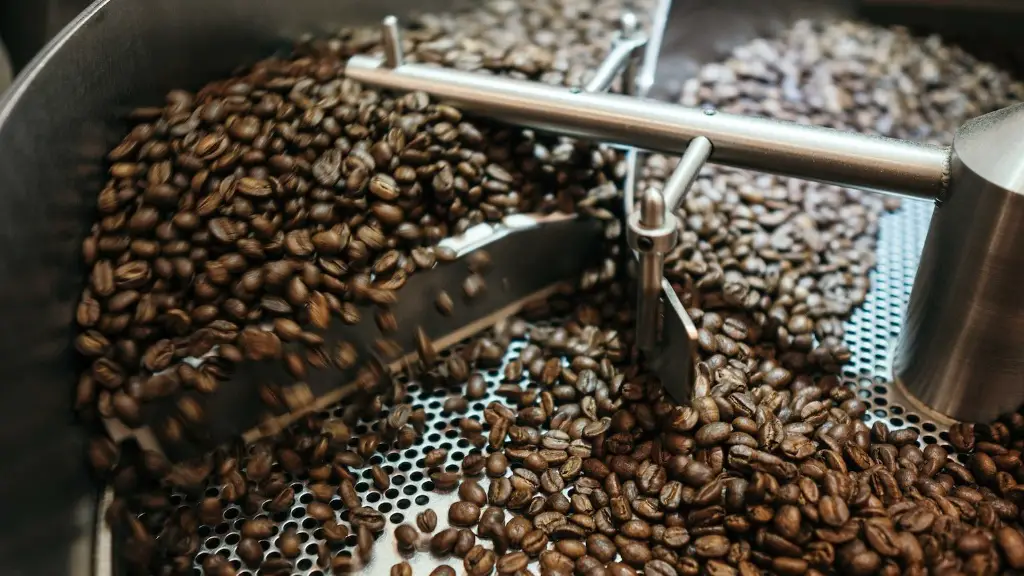Caffeine is one of the most widely consumed psychoactive substances in the world. Whether it’s in the form of coffee, tea, soda or energy drinks, it has become a part of many people’s daily routine – including pregnant women. While the stimulant effects of coffee can be beneficial, there are potential risks to consider when it comes to drinking coffee while pregnant.
Coffee contains high levels of caffeine, a stimulant that can cross the placenta and enter into the bloodstream of the fetus. According to the American College of Obstetricians and Gynecologists, excessive caffeine consumption during pregnancy – defined as more than 200 milligrams per day – may be associated with an increased risk of miscarriage or stillbirth. There’s also evidence that excessive caffeine intake during pregnancy can cause low birth weight, preterm birth and childhood leukemia.
To reduce the risk of these potential complications, experts generally recommend that pregnant women limit their caffeine intake. The US Dietary Guidelines recommends that pregnant women consume no more than 200 milligrams of caffeine per day – the equivalent of one to two 8-ounce cups of coffee. Studies have shown that consuming that amount of caffeine during pregnancy does not appear to be associated with an increased risk of adverse outcomes. However, reduction or complete abstinence may be warranted depending on individual circumstances.
Women who are pregnant or planning to become pregnant should also be aware of hidden sources of caffeine, including chocolate, energy drinks, some teas and certain medications. Additionally, research suggests that caffeine is better tolerated in smaller, frequent doses instead of a single large one.
In addition to limiting caffeine, pregnant women should be aware of other substances that are sometimes added to coffee, such as sugar, cream and artificial sweeteners. Although sugar and cream are generally considered safe during pregnancy, artificial sweeteners can cross the placenta, and their safety during pregnancy has not been well established.
If you’re pregnant or planning to become pregnant, consider reducing or completely avoiding caffeine. In addition to the potential risks, life has plenty of other enjoyable beverages and activities to enjoy to keep you well-hydrated, alert and energized. If you need a morning pick-me-up during pregnancy, try decaf or other caffeine-free beverages such as herbal teas.
Are Coffee Alternatives Safe During Pregnancy?
Switching out your morning cup of coffee for a decaf alternative may seem like an obvious solution to reducing caffeine intake during pregnancy, but some popular decaf drinks come with concerns of their own. Many decaf coffees are decaffeinated using chemicals such as methylene chloride and ethyl acetate. Although current research suggests limited risk of exposure to these chemicals, pregnant women should avoid beverages that use them if possible.
Caffeine-free herbal teas made with substances such as raspberry leaf, peppermint leaf, nettle leaf and chamomile are considered safe during pregnancy. However, it’s important to speak with your doctor or midwife before drinking herbal tea in pregnancy, as some herbs can have potential side effects, including uterine contractions.
In addition to herbal teas, unsweetened iced tea, fruit juices and smoothies, hot cocoa and flavored or plain water are all great options for pregnant women looking for a caffeine-free alternative.
How Can I Cut Down Caffeine Intake During Pregnancy?
Cutting down on caffeine during pregnancy can be difficult for those accustomed to drinking coffee or other caffeinated beverages daily. To reduce caffeine intake gradually, drinking one cup of coffee in the morning and switching to decaffeinated beverages for the rest of the day can be a great strategy. Additionally, switching from grinders to pods, as well as from medium to dark roast coffee, can be helpful in reducing caffeine, as dark roast coffee tends to contain less caffeine.
Drinking fewer caffeinated beverages throughout the day can also help reduce caffeine intake. Additionally, maintaining a healthy diet, reducing stress, avoiding stimulants and getting adequate sleep can all help reduce caffeine cravings.
What Are The Benefits of Caffeine During Pregnancy?
Although reducing or abstaining from caffeine may be preferable during pregnancy, coffee and other caffeine sources have some potential benefits. For example, caffeine is known to be a mild diuretic, which can help reduce fluid retention during pregnancy. Additionally, it’s widely believed to improve alertness and focus, although this is still under debate.
Caffeine is also found in many pain relief medications, including over-the-counter drugs such as Tylenol and Advil. As long as the medication is taken as recommended by a doctor, it is generally considered safe during pregnancy for treating headaches and other minor aches and pains.
What Special Precautions Should I Take During Pregnancy?
Pregnant women should always consult with a doctor before taking any medications, supplements or herbal teas. Additionally, pregnant women should always speak to a doctor before making significant dietary changes and should make sure they are getting adequate nutrients, vitamins and minerals.
In addition to monitoring caffeine intake, pregnant women should take other steps to reduce the risks associated with pregnancy, including avoiding alcohol, tobacco and recreational drugs, and following any other recommendations or dietary restrictions made by their health care provider.
What Should I Do If I Feel Overly Tired During Pregnancy?
Fatigue is common during pregnancy, and it can often be managed by getting adequate rest, reducing stress, drinking plenty of fluids and eating healthy meals regularly. In addition to avoiding caffeine, pregnant women should limit or minimize the amount of energy drinks, soda and other high-sugar beverages they consume.
If fatigue persists despite these steps, it’s important to speak to a doctor or midwife to make sure there isn’t an underlying medical issue. Additionally, exercising regularly, taking part in relaxing activities and engaging in light stretching can all help reduce fatigue during pregnancy.
What Are Some Tips to Help Reduce Caffeine Intake During Pregnancy?
Consuming no more than 200 milligrams of caffeine per day is generally considered safe during pregnancy, and pregnant women should always consult with a doctor before making significant dietary changes. Here are some tips to help reduce caffeine intake during pregnancy:
- Switch to decaf: Switching out your morning cup of coffee for a decaf alternative is a great way to reduce overall caffeine intake during pregnancy. However, it’s important to check if the decaf was made with chemicals such as methylene chloride or ethyl acetate, as these substances may be associated with risks.
- Try caffeine-free alternatives: There are plenty of caffeine-free beverages to enjoy during pregnancy, including herbal teas, plain or flavored water, hot cocoa and fruit juices.
- Cut down gradually: For those used to drinking caffeinated beverages daily, cutting down gradually can be an effective way to reduce caffeine intake. For example, drinking one cup of regular coffee in the morning and switching to decaf for the rest of the day is a great way to start.
- Check for hidden sources: Caffeine can also be found in chocolate, energy drinks and certain medications, so it’s important to check labels and ingredients to make sure you aren’t consuming hidden sources of caffeine.
What Are The Benefits of Drinking Decaf When Pregnant?
Although decaf coffee can still contain trace amounts of caffeine, drinking decaf instead of regular coffee can be beneficial for those looking to reduce their overall caffeine intake during pregnancy. Here are some of the possible benefits of drinking decaf during pregnancy:
- Fewer jitters: Decaf coffee has a significantly lower amount of caffeine than regular coffee, meaning it won’t have the same stimulating effects and can reduce the risk of over-stimulation or jitters.
- Better sleep quality: Caffeine can interfere with sleep, and reducing or abstaining from caffeine can help improve sleep quality in pregnant women.
- Reduced anxiety and stress: Caffeine is a stimulant, and reducing caffeine intake may help reduce stress and anxiety levels during pregnancy.
- Drinking something enjoyable: Many pregnant women may feel deprived if they completely abstain from coffee, as it can be difficult to find replacement activities for the routine of drinking coffee. Decaf offers an enjoyable and safe alternative for pregnant women that still allows them to enjoy the social aspect of drinking coffee.
What Are The Risks of Consuming Too Much Caffeine During Pregnancy?
The risks associated with high levels of caffeine intake during pregnancy vary depending on individual circumstances, but in general, excessive caffeine intake can increase the risk of miscarriage, stillbirth, low birth weight, preterm birth and childhood leukemia. Additionally, potential risks can arise from hidden sources of caffeine, such as energy drinks and certain medications, as well as chemicals used to decaffeinate some drinks.
Women who are pregnant or planning to become pregnant should consider reducing or completely avoiding caffeine to minimize the risks associated with drinking coffee while pregnant. Additionally, speaking with a doctor or midwife before taking any medications or supplements during pregnancy is always advised.





